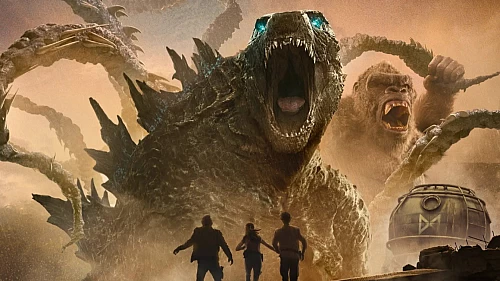Movie themed licensed videogames very rarely end up being remembered as quality games. Such games are generally rushed through development and released to coincide with the theatrical release of the movie the game is licensed from, maximising profits from audience members looking for merchandise from the movie. For a long, long time this was the norm gamers had to live with. That was until the release of Rareware's videogame adaptation of the 17th James Bond movie Goldeneye for the Nintendo 64. Released in 1997 the game became an instant classic, not just for its recreation of the movies key action sequences, but also for its addictive and compelling multiplayer deathmatch mode.

Since Goldeneye, a rising number of licensed games have become top selling, well respected games within their own right - The Batman: Arkham Series, Alien: Isolation, Star Wars: Battlefront II etc. But unfortunately many of these licensed games just aren't devloped with enough care. One of the most infamous examples in recent years is of course Aliens: Colonial Marines, another example would be the virtually unknown Terminator Salvation game, of which the star Christian Bale refused to lend his voice to. The game was so mediocre and non-descript,that it was mostly played via rental services - mainly for its easy to obtain achievements and trophies.

Which brings us to the videogame adaptation of the newest instalment in the Terminator movie franchise; Terminator Genisys: Revolution. From developer Glu Games, this game will soon be available for mobile platforms Android and IOS, and uses the well established 'optional' micro-transaction model that allows gamers to progress through the game at an accelerated rate if they pay to purchase in game assets. The games gameplay is reminiscent of a Playstation One game called Metal Gear Solid: VR Missions. Using a cover system similar to that seen in the Gears of War games the payer must complete individual missions in strategically laid out arenas, earning cash for completion of objectives completed. While the game does evoke memories of MGS: VR Missions, it fails to even scratch the surface of the 1999 game, with repetitive missions in a non-sensical puzzle game format. For example, while the in-game upgrading and purchasing system allows for the games content to be released slowly to the player, its execution is par-for-the-course and unimaginative, actually ignoring the fact that human resistance soldiers have no money.

Now, if developer Rovio gave us an Angry Birds Terminator instead, that we'd want to play...

Terminator 2D: No Fate video game adaptation is available now!
The Original Terminator Franchise Partners with Reef Entertainment for Terminator 2D: No Fate Video Game Adaptation is now available!

Terminator 7: James Cameron says No Schwarzenegger & No fan-friendly callbacks in next Terminator movie!
After Avatar: Fire and Ash, James Cameron is tackling a new Terminator movie and he explains the next one will be a blank slate with no callbacks!

James Cameron is currently writing Terminator 7 but admits he has writer's block
James Cameron is currently writing the script for his own, new Terminator movie (Terminator 7 until an official title is revealed) but during a recent...

State of Survival x Terminator game crossover is now live!
The State of Survival x Terminator crossover is now live! Join limited-time events and fight back against Skynet's killing machines! Read on...

Terminator Zero (2024) is a new Terminator anime series coming to Netflix!
Terminator Zero is an upcoming anime series which will release on Netflix later this summer! Thanks to Entertainment Weekly we have a summer preview, ...


